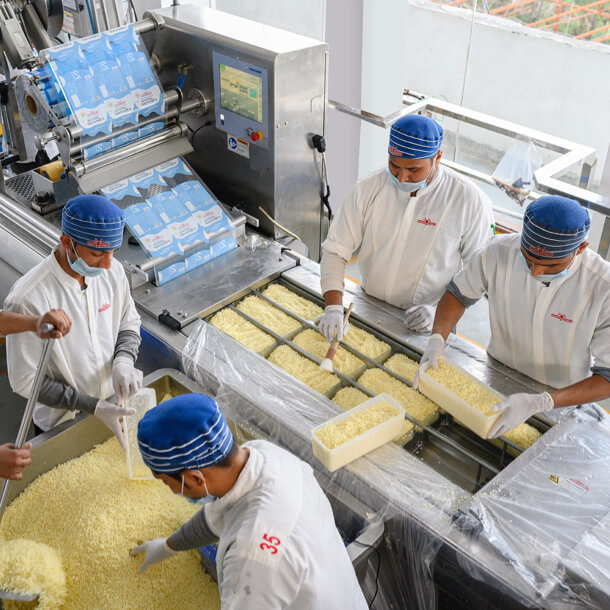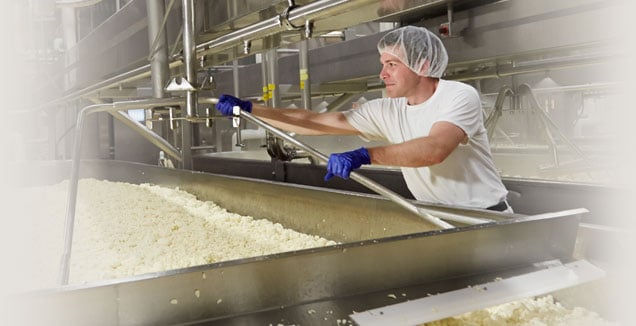Discover the most effective Cheese Makers Melbourne for Artisan Delights
Discover the most effective Cheese Makers Melbourne for Artisan Delights
Blog Article
A Comprehensive Check Out Cheese Manufacturing: Components, Techniques, and the Future of Artisan Cheeses
The intricate process of cheese production is an interesting merging of art and science, where top quality milk, rennet, and details bacterial societies offer as foundational aspects. Standard techniques, such as salting and aging, are enhanced by modern developments that reply to evolving customer preferences. As the sector significantly prioritizes sustainability and openness, the future of artisan cheeses assures to reflect both heritage and progression. Understanding the subtleties of these practices raises engaging questions about the instructions of cheese manufacturing and its implications for quality and authenticity. What exists ahead in this developing landscape?
Trick Active Ingredients in Cheese Production
A variety of crucial ingredients play a critical duty in cheese production, each adding to the end product's taste, appearance, and personality. The key active ingredient in cheese is milk, which can originate from numerous resources, consisting of cows, goats, and sheep - cheese for sale online. The kind of milk used considerably influences the cheese's preference and uniformity; for instance, cow's milk generally generates creamier cheeses, while goat's milk typically creates tasty ranges
An additional critical ingredient is rennet, an enzyme used to curdle the milk, dividing it right into curds and whey. The resource of rennet can be animal, vegetable, or microbial, each passing on distinct characteristics to the cheese. Cultures, including details pressures of microorganisms, are likewise essential to the cheese-making procedure. They ferment lactose into lactic acid, helping in flavor advancement and texture.
Salt not only boosts the flavor but additionally works as a preservative, inhibiting the development of unwanted germs. Additionally, numerous flavoring representatives, such as herbs, seasonings, or also smoked wood, can be included to produce distinct artisanal cheeses. Together, these ingredients create the foundation of cheese production, establishing the phase for diverse and abundant cheese varieties.
Typical Cheese-Making Strategies
Making use of traditional cheese-making techniques, craftsmens around the globe maintain classic approaches that have been given through generations. These strategies commonly emphasize using premium, locally sourced milk, which is main to the distinct tastes and structures of artisanal cheeses. The process commonly begins with the mindful heating of milk, complied with by the enhancement of cultures and rennet to promote coagulation.
Once the curds create, they are reduced, permitting whey to drain pipes, a crucial step that affects moisture material and structure. Salting is a necessary element of this process, improving flavor while also acting as a preservative.
Aging, or affinage, is one more vital element, throughout which cheeses create their particular scents and preferences. Artisans may use details aging settings, making use of moisture and temperature level controls to refine the cheese's profile. The commitment to these conventional methods not just supports local economies yet additionally adds to the rich variety of cheese selections discovered internationally, celebrating cultural heritage and artisanal craftsmanship.
Modern Innovations in Cheese Manufacturing
Just how have technical advancements transformed cheese manufacturing in the last few years? The integration of contemporary innovation has actually revolutionized both the effectiveness and high quality of cheese production. Automation in various phases of the process-- from curd development to product packaging-- has enhanced uniformity while reducing labor expenses. For circumstances, automated curd reducing and mixing systems permit exact control over texture and dampness degrees, important factors affecting the end product.
Additionally, improvements in microbiology have actually enabled cheesemakers to pick particular microbial societies and enzymes, optimizing taste accounts and boosting life span. Using sensing unit technology for checking fermentation conditions has actually additionally become common, permitting for real-time adjustments to maintain optimal environments for cheese aging.

These innovations not just enhance the top quality and sustainability of cheese manufacturing but additionally equip craftsmen manufacturers to keep typical flavors while welcoming contemporary performance. As modern technology proceeds to develop, the future of you could look here cheese production looks appealing, mixing custom with advancement.
The Role of Terroir in Cheese
In the world of cheese production, terroir plays a crucial function in specifying the unique characteristics of numerous cheeses. Terroir, a French term typically linked with white wine, encompasses the environmental factors that affect agricultural items, including soil investigate this site make-up, climate, and neighborhood plants and animals. In cheese-making, the special qualities of the area where the milk is sourced can impart certain flavors and textures to the last product.
For circumstances, the grazing problems of dairy animals significantly impact the milk's make-up, influenced by the sorts of yards and herbs available in a particular area. This varies not just in between nations but additionally between areas within the very same nation. Furthermore, the microbial communities present in the setting add to the fermentation procedures, causing diverse profiles in taste and scent.
Cheeses such as Roquefort, Parmigiano-Reggiano, and Cheddar exemplify exactly how terroir can form their identities, making them unique and commonly protected by geographical indicators. As producers progressively identify the relevance of terroir, there is a growing emphasis on sourcing regional components and preserving standard methods, making certain that each cheese genuinely mirrors its origin.

Future Trends in Craftsmen Cheeses
A remarkable shift is occurring in the craftsmen cheese industry, driven by evolving consumer preferences and technical developments. Increasingly, customers are inclining one-of-a-kind, top notch products that highlight both sustainability click here now and local sourcing - cheese makers melbourne. This pattern is triggering artisan cheesemakers to innovate, concentrating on small-batch manufacturing and using typical techniques while incorporating modern-day technology to improve quality and security
In addition, there is a growing rate of interest in plant-based and different milk products, pressing traditional cheesemakers to check out brand-new avenues, such as cashew or almond-based cheeses. This shift not just satisfies nutritional constraints but likewise straightens with ecological issues pertaining to animal agriculture.
Furthermore, openness in sourcing and manufacturing procedures is coming to be critical. Consumers are a lot more enlightened and need traceability, prompting producers to take on clearer labeling practices and take part in narration that highlights their techniques and worths.
Verdict
Finally, the intricate procedure of cheese production fuses traditional strategies with modern-day developments, resulting in a diverse array of tastes and structures. The emphasis on high-grade components and the impact of terroir highlight the artistry entailed in cheese manufacturing. As the market progresses, a concentrate on sustainability and openness will likely form the future of artisan cheeses, dealing with a significantly critical consumer base that values authenticity and workmanship in milk items.
Report this page